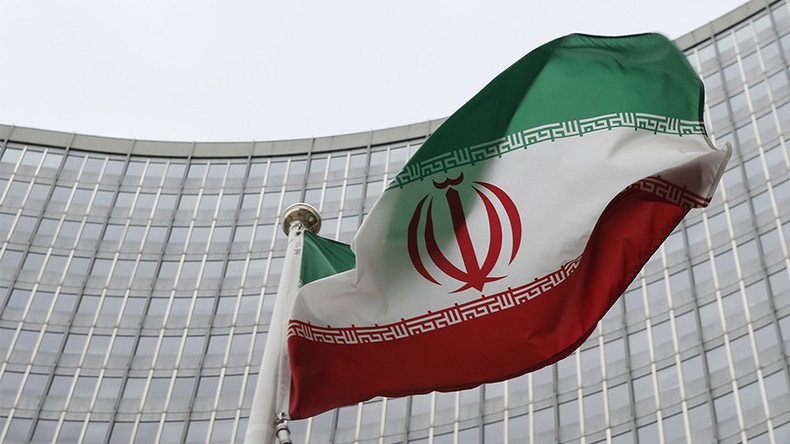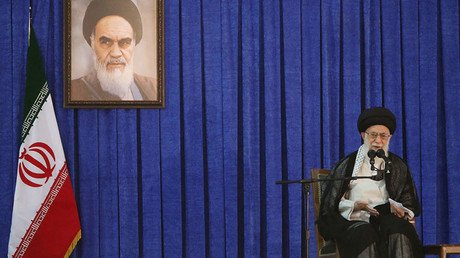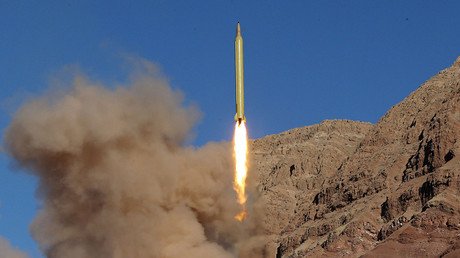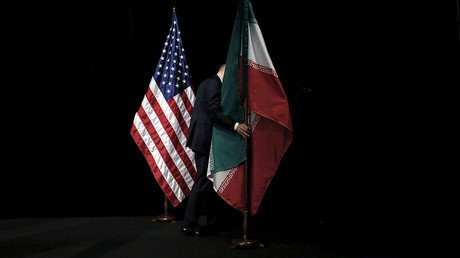‘New US sanctions are clear violation of nuclear deal’ – senior Iran official

A senior adviser to the supreme leader of Iran has slammed a new set of sanctions against Tehran recently approved by the US Senate, calling them a “breach of the spirit and the letter” of the deal reached between Iran and six major powers in 2015.
The US Senate’s move is “unquestionably in breach of both the spirit and the letter of the JCPOA,” said Ali Akbar Velayati, a senior adviser to Ayatollah Ali Khamenei on international affairs, referring to the Joint Comprehensive Plan of Action (JCPOA) agreed upon by Iran and six major powers, including the US, in 2015.
Velayati went on to say that the Iranian committee tasked with monitoring the implementation of the agreement would “certainly” examine the Senate move and come up with a “decent” response, as reported by Iranian media.
By imposing new sanctions, the US is attempting to “cover up the repeated defeats it has suffered from Iran in Iraq and Syria,” the senior adviser said.
The US Senate approved the bill imposing new sanctions against Iran by a majority of 98 to 2 on Thursday. However, the bill still needs to pass the House of Representatives and be signed by the US president to become law.
The sanctions were imposed over Iran’s ballistic missile program and “other activities” not related to the international nuclear agreement, including human right abuses, US media report.
“It truly is astounding what Iran continues to do around the world,” said Tennessee Sen. Bob Corker, the Republican chairman of the Senate Foreign Relations Committee, as cited by USA Today.
“We see destabilizing act after destabilizing act – from missile launches, to arms transfers, to terrorist training, to illicit financial activities, to targeting [US] Navy ships and detaining American citizens,” he added.
Tehran has repeatedly stated that its ballistic missiles are not capable of carrying nuclear warheads and that its missile tests do not violate UN resolution 2231, which calls on Iran to refrain from any activities “related to ballistic missiles designed to be capable of delivering nuclear weapons, including launches using such ballistic missile technology.”
Under the new bill, the US could impose sanctions against any foreign person or entity that does business with any entity already designated by Washington as having connections with the Iranian ballistic missile program.
"It's a much more powerful sanctions measure than merely just designating Iranian entities that are involved in missile development," Mark Dubowitz, CEO of the nonpartisan think tank Foundation for Defense of Democracies, told CBS News.
The Iranian nuclear deal, which took years to negotiate, restricted the nuclear ambitions of Tehran in exchange for lifting financial and oil sanctions. The accord, signed between Iran and the so-called P5+1 countries (China, France, Russia, the United Kingdom, the US, plus Germany) and the EU, was touted as one of the main foreign policy achievements of the Obama administration.
However, current US President Donald Trump called it “the worst deal ever negotiated” during his campaign for the White House.
In January 2016, inspectors from the International Atomic Energy Agency (IAEA) determined that Iran had fulfilled its obligations under the deal and the US and European countries eased the sanctions imposed against the Islamic republic.
This February, the IAEA said in a report that Iran was still in full compliance with the nuclear deal.
Both the US and Iran earlier accused each other of violating the spirit of the atomic agreement, if not beaching it. In February, the US slapped Tehran with a new round of restrictive measures related to its missile program following Iran’s missile and radar tests earlier the same month.
In December 2016, the US extended the Iran Sanctions Act (ISA) for another 10 years, causing outrage in Tehran.
Iran imposed its own sanctions against 15 US companies in March. In May, it added nine US-linked entities to its sanctions list. The sanctions mean that Iran could seize local assets of the listed organizations and deny their employees entry to the country.















